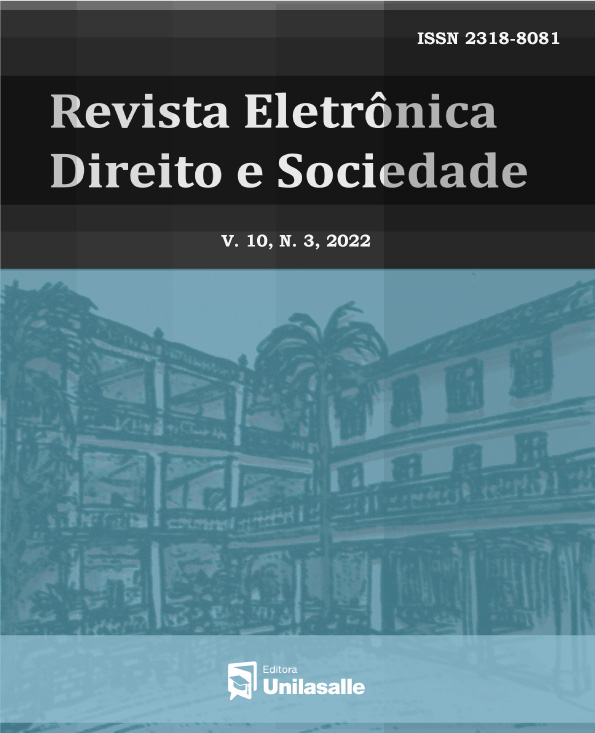Pandemia e direito: um estudo à luz das opções distributivas constitucionais e da interseccionalidade
DOI:
https://doi.org/10.18316/redes.v10i3.8377Keywords:
Pandemia, Interseccionalidade, Constituição Federal, Direito do Trabalho, Direito CivilAbstract
As normas jurídicas elaboradas em razão da pandemia da Covid-19, com o objetivo de minorar os impactos econômicos da situação, estão de acordo com as opções distributivas da Constituição Federal? As normas em questão têm o condão de evitar a potencialização das estruturas de opressão que se entrecruzam no cenário de exclusão social? Para responder a estas perguntas e a partir da vertente metodológica jurídico-social, o presente artigo recapitula a disciplina constitucional quanto aos direitos sociais e à ordem econômica. Posteriormente, analisa três normas jurídicas, de diferentes ramos do Direito, que trataram de questões distributivas: a Medida Provisória 936 (convertida na Lei 14.020/2020), que modificou normas trabalhistas; a Lei nº 14.010/20, que trata do regime jurídico emergencial e transitório de Direito Privado; e a Lei nº 13.982/20, que instituiu o auxílio emergencial. Revela-se, em todas elas, uma resistência em implementar as opções distributivas do Constituinte, já que não há uma busca de equilíbrio entre os valores do trabalho e da livre iniciativa (como prevê a Constituição Federal), mas uma oneração excessiva dos mais vulneráveis. Ademais, a interseccionalidade permite que se analise como as diversas exclusões sociais estão associadas e vêm sendo acentuadas pelos efeitos econômicos da pandemia, pouco combatidos pelas leis acima mencionadas, revelando-se um cenário de desconexão da ação estatal relativamente à sua norma fundante, sobretudo em face de grupos histórica e sistematicamente excluídos.
Downloads
Published
Issue
Section
License
Authors who submit their manuscripts for publication in the “REDES” Magazine agree to the following terms:
The authors claim to be aware that they retain copyright by giving “REDES” the right to publish.
The authors declare to be aware that the work submitted will be licensed under the Creative Commons Non-Commercial Attribution License which allows article sharing with acknowledgment of authorship and publication in this journal.
The authors declare to be aware that by virtue of the articles published in this journal have free public access.
The authors declare, under the penalty of the law, that the text is unpublished and original and that they are aware that plagiarism has been identified, plagiarized authors will be informed - willingly, to take legal action in the civil and criminal sphere - and, plagiarists will have their access to the magazine blocked.
The authors state that - in case of co-authoring - all contributed significantly to the research.
Authors are obliged to provide retractions and (or) corrections of errors in case of detection.
The authors are obliged not to publish the text submitted to “REDES” in another electronic journal (or not).
The Electronic Journal Law and Society - REDES - is licensed under a Creative Commons License. Attribution-NonCommercial 4.0 International.Based on work available at "http://revistas.unilasalle.edu.br/index.php/redes/about/submissions#copyrightNotice".
Permissions in addition to those granted under this license may be available at http://creativecommons.org/.

